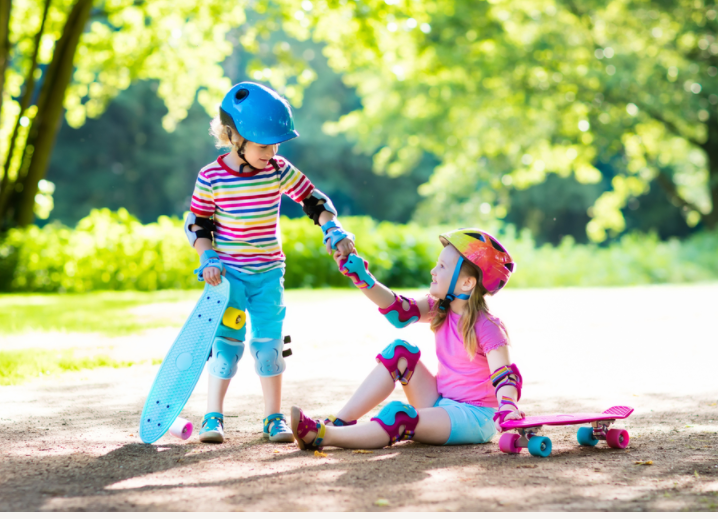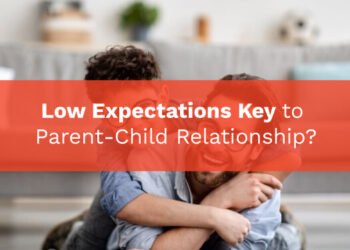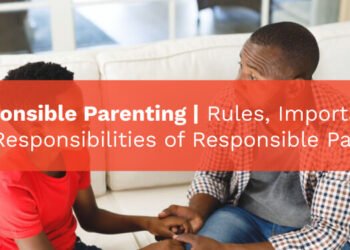Parenting is an art that includes parents and children, and other family members. They said,” it takes a whole village to raise a child.” But the journey of parenting lasts longer. The role of parents continues till the end of life. The whole scenario of parenting from birth falls under the process of parenting. It depends upon the parents as to how beautiful they want the flow of parenting to be.
Parenting requires proper balance and providing for children. The initial stages of parenting include planning for kids. After kids are born, the nurturing starts. As a parent, you must nurture kids till you authorize them. Kids slowly start learning the environment around them, and you, as a parent, must guard them.

During adolescence, parents carefully look after children. The proper balance of love, authoritativeness, nurturing, understanding, and trust keeps the wheels of parenting strong. With that, proper coordination among parents and daily activities impacts kids for a lifetime. The social, psychological, emotional needs require balance.
After adolescence, kids leave home, and the parents still care about kids. Be it Christmas or Easter or any other family gathering, the love and bonding between parents and kids propel. The cycle of parenting then transfers to the kids’ kid, and that is how the entire concept of families sustains, leading to society and the nation as a whole.
Why Is Parenting Important?
Parenting is the most important thing that happens to your child. The style of parenting plays an essential role in kids’ life. If you are an authoritative parent, kids have difficulty catching up with rules and regulations and following them. In contrast, pessimistic parenting can result in kids lacking discipline and self-control.
When you are entirely uninvolved with your kids, detachment leads to less communication. This difference will make kids feel lonely, and they may settle for inappropriate actions. Kids will not have their needs fulfilled, and parents miss the whole point of proper parenting. Here are some points why parenting is essential:
- Parents are responsible for providing security to kids. When your kids grow in a loving, caring, and kind environment, they develop trust with the outer world. Such kids have better relationships with people other than family members.
- A child who has a backup of parents is better at dealing with problems in the future. Parents show a way to deal with certain situations, resulting in kids being stronger emotionally and remaining brave.
- Your influence in your kid’s life impacts them a lot. Children learn language, manners and have better mental health when parenting is good.
- Parents influence kids to be better at everything. It can be performing better in academics or even sports. An encouraging parent always brings out the best in a child.
- Proper love, nurturing of your kid, and fulfilling their needs will keep kids happy. This happiness will keep you happier.
- The day-to-day interaction will make kids see you as a role model. If you have an approach to understanding them, then kids will always be there for you.
Parenting With Time
Kids grow into adolescents, and adolescents grow into adults, but the process of parenting doesn’t stop with time. The point lies in parenting styles changing with the changing ages of children. Here are stages of parenting for different age groups:
Preparation For Arrival
This stage includes planning and preparing for the baby. Your child is inside the womb while you adjust places and plan and imagine for the birth. The plan for arrival includes financial planning and building a comfort zone.

Birth to 18-24 months
In this stage you need to give your full time to your newborn. This stage can be hectic as you need to nurture and take proper care of the kid. You might also wish to balance your social and professional life while taking care of the baby. You need to make sure they get sound sleep at night.
2-5 years
Kids grow from crawling stage to walking. In this, you have to teach them various things and start setting rules. Children start observing and learning from things around them. It would help if you were extra careful at this stage as at this stage kids can injure themselves a lot. Hence, you need to provide them with safety at this phase.
5years-Tween
Kids begin socializing in this phase. They get exposure to the outer world and build other relationships like friends. They leave for school and this time make sure to be their friend and listen to them. Kids can face problems like bullying and peer pressure, so better keep an eye on your kids during this phase.
During adolescence
Adolescence can be a challenging for both parents and children. Proper communication is vital. Kids need to obey you, and you decide many things for them even if they don’t like it. Children go through extreme emotions, feelings, and peer pressure in this phase and may hide things from you too. On social media and internet they may follow online threads that lead to unnecessary sites. This influences adolescents.
Adolescence to adulthood
Kids depart after the completion of adolescence and enter adulthood. They are independent and take decisions on their own. It can be an emotional time for the parents. The parenting continues even after your kids move out of the house. You should call and check up on how your kid is doing. You can help your darling to start a new life.
How To Be a Good Parent While Parenting?
There are a lot of questions as to what a parent should be like. But the answer is there is no trick or tip to parenting. It just happens like any other thing. There can still be labels to define the criteria of parenting or ways to parent kids. The best way is for parents to try their hardest to be there for children. Some ways to be a good parent are:
Listen To Your Kid
It would be best if you listen to your kids, listen to them and react accordingly. In hard times give them the advice they require. A good parent is the one who listens to their kid. As a parent, it is essential to let kids know parents are there for them.
Show Them, Immense Love
The love between parent and child is irreplaceable; therefore, do not forget to show them how much you care. Be understanding and take them out for family trips and provide them with all necessities. Remember their likes and dislikes and surprise them occasionally.
Set a Few Rules
When setting rules and regulations, set them in a way that kids stay disciplined. As a parent, remember to think about the ease and difficulties. Do not go overboard with providing what is challenging to provide.
Be Their Friend
The most critical nature of a good parent is your friendliness. With a friendly approach, kids share everything with you. You can be updated with your kids’ life.
Praise them in accomplishment
A word of encouragement and praise will help children perform better. When children do something good, praise them for making them realize they did a good job. This encouragement will help them perform other praiseworthy activities.

Boost Confidence
After kids start socializing, make sure their confidence is not low. As a parent, you should boost your kids’ confidence. It is parents who should help children stay confident and accountable in every action they perform.
Communicate regularly
Communication is the most crucial factor even after a hectic day at work; make sure you talk to your kids. Communicating will let you know what changes you should adopt in the current parenting style. The success of any relationship is based on proper communication.
How To Strengthen Relationships With Kids?
The parent-child relationship should be a strong one. It is not always necessary for you to be sweet in front of your kids. As a parent, you should set boundaries and rules but without affecting them or hurting them.
If parent-child relationships are strong enough, those minor incidents do not affect the bonding. The key here is to set a stout base beforehand. Parenting also requires parents to constantly staying updated with their activities, and here are a few things to keep in mind to strengthen the parent-child relationship:
Spend Time With Kids
To be a loving parent and love kids more, you should spend time with kids. You can play with them or go on a walk. Indulging in sports is also a good idea. Asking them about day-to-day activities strengthens parent-child relationships.
Be available
Always be available for your kids. If there are some functions at school or community, then support your child. Let others know how important kids are to you. Availability will increase kids’ love and affection towards you.
Eat Together
Eating together will help you know a lot about your kids. Food is essential, and breakfast or dinner together is a great time to chit-chat and strengthen relationships with your kids.
Show them, love
Surprise your kids with gifts and games, play with them and go on trips. Showering and showing love during festivals and regular days is a plus to strengthen bonds with kids and family.
Solve and listen to their problems
Do not judge your children when they face some problems. You can tell them to elaborate on their problems, and after listening, you can suggest some ideas. When you advise your kids to solve their problems, kids develop trust for you.
Some Ways To Improve Parenting Skills
Parents are not born perfectionists; you learn from every situation when dealing with kids. With experience, you end up learning more parenting skills. That includes how and what maintains peace and harmony at home with constant interaction with your kid. It also includes the use of authority in proper time and the aftermath of restrictions put on children. Here are a few parenting skills that might help:
Show them love again and again
You and your kid can end up having a misunderstanding but never stop showing love. While instructing them, still shower them with a lot of love. When you are stern, the kids should know that there is immense love inside of you.
Be A Flexible Parent
As one of the essential skills, you need to be a flexible parent. The generation gap between parents and kids is inevitable. You can still make some adjustments about it. Don’t criticize the modern trends and ways. Remember, you were once a kid.
Remember that you are their role model
What you act in front of your kids is what they will act in front of theirs. Remember that mother and father are kids role model and that their actions affect children. Your kids will look after you. You need to set good examples in front of your children. Kids are watching you do every chore at home. Teach your kids to be honest and to work hard.
Control Over Emotions
When you are angry with someone else in front of your kids, do not scream at them. Do not yell or pour frustrations on them. When problems arise, do not lose your calmness and face problems in a direct yet relaxed manner. Also, do not get overprotective or over-possessive about your kids.
Stick To Rules
For kids to follow and learn rules, parents need to follow them first. While driving, kids know about traffic rules from you. Kids learn manners and gestures from you, so stick to rules. Also, if kids do not follow any rules, deal with an authoritarian approach.
How To Raise Good Children Via Parenting:
What you do daily and what you teach your kid may not be enough. It doesn’t mean you need a list of dos and don’ts. Some habits and behavior that kids develop internally need polishing. You can raise children with good habits by teaching them specific ways from an early age.
Two factors that define a kid are external and internal factors. External factors include how a kid performs in studies and how he or she presents concerning cleanliness and hygiene. Internal factors address issues like love, hatred, jealousy, and emotions. It includes the niceness of your kid. Here are some ways to raise a good child:
Good Behaviour
Teach your kids terms like “Thank you” and “sorry.” They usually learn such terms from you. When you use polite language, that is what they copy. Make them understand that it is essential to treat everyone evenly irrespective of differences. Behavior like patience and basic manners are copied from parents by kids. Table manners and proper greeting habits define how well-behaved your kid is.
Empathy
Feeling what the other person is experiencing is a term of empathy. When you groom your child to be an empath, he or she understands the world better. Being emotionally intelligent will help them when they grow up to be an adult. Kids who feel others can express their emotions better.

Responsible
Assigning new responsibilities per age strengthens the confidence of a child. Duties make a child mature. You can assign responsibilities to your kids and watch them learn. They can further teach their siblings and feel happy about task completion.
Thankfulness
Tell your kids about the meal prepared in the kitchen, explain the working of individuals in society. This habit will encourage them to express thankfulness for all that you do for them. Being thankful and appreciative of others will ensure proper relationships with all that your kid interacts with. Teach them to be happy with what they have.
Discipline
Discipline is a virtue important for all kids. When a kid is disciplined, he or she will stay disciplined in adult life and at an early age. You should seriously guard your kid and teach them discipline. One small act of not emphasizing mischief can encourage kids to do more unnecessary activities.
Define rules and regulations and help them live with rules. By following rules at home, they will follow other rules at school and in college and become good citizens. You are responsible for setting a firm root of discipline in your kid.
Treatment with kindness and respect
When you feed pets or show kindness, the first thing kids notice is how wonderful it is to be kind. Similarly, respecting others will give you respect back. Following such habits will inculcate kindness in kids, and they will interact better socially by giving and receiving respect.
Harsh words and anger can affect your child psychologically. Keep a notice of how you talk with others and your kids. Friendliness and politeness teach kids to love others more and will give back the same to others.
Rewards
Reward your children for the good things they perform. The biggest surprise is the excellent feeling obtained after helping others. You should help your child realize this feeling. It is not compulsory to reward them for every good thing they do. Rewards are to make them do more good things. Make sure they don’t do good things, expecting a reward.
Volunteering
Volunteering teaches kids what difference they can make in others’ lives. It can include providing goods for less fortunate ones. Donations and charity are some activities that you can take your child to. When your kid watches you donating and getting involved in social works, he or she learns to do so. The act of volunteering establishes his or her duty toward society.
Truthfulness
Ask your kids to speak and stand up for the truth. When someone is in trouble, ask them to help them. Advice them to help the ones in need. When someone is bullied, ask them to help victims. Teach them that gossiping is wrong and spreading negativity is false.















